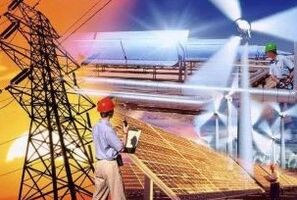Each of us wants your home to be cozy, comfortable, unique, so that you are always, wherever someone is away from family members' house, he knew he was waiting for him at home, always listen and understands, help with a difficult time.This is why families have traditions that must be adopted and transferred to their future families.We will talk about the tradition of obscurity, about the emergence of energy conservation skills in children.

Psychologists argue how the child will later react to Kseb, others and life as a whole - completely and completely depends on their parents.Life may seem to him an endless holiday or a fascinating trip, and can be seen as boring, ungrateful and hard work and the school's perishable.The child perceives the world through the eyes of adults - his parents.
There are external factors that affect family meters.The standard of living and modern progress is dictated by its own rules, and there are no more special things than the three -year -old -four -year -old -easily deals with the computer fins, with the inclusion and disconnection of lighting in the rooms.The closing of TV and watch children's shows.It also opens the taps with water, you know where the hot water is, where it is cold.It acts carefully for heating radiators and knows that heating works when Naulitsa is cold and does not work when there is heat on the street.
After 5 to 7 years, he is already interested in questions: Where does the gars come from and how do you go to the apartment?;Why is it necessary to replenish a car fuel and where does it come from?Why does electricity turn off (at the time of watching children's programs) and water (when the child is washed in the bathroom) and depends on someone?Why do you need to get out of town and breathe clean air and undertake in the backyard with your friends?
All these problems, one way or another, are connected by an ecology, are relevant in our time and excite adults.Maybe they are interested in the energy conservation of young children from 5 to 10 years old?Can they consciously contribute to your decision?
Let's answer immediately - they can if the adults are interested in this.There are several children's training programs in the field of energy and ecology in different countries for pre -school and school educational institutions.It is true that I must say that these programs are optional for training and training are performed voluntarily.On the day relevant state documents and energy saving issues, energy conservation for children will also be understandable as rules of behavior, the history of native earth, the geography of IDR will be adopted.
Examples of a pedagogical approach to save energy
For the child to quickly dominate these concepts in the kindergarten, in school worship classes, she needs to help do this in the family.After 5, Letrebok begins to know the world in a fun way.He really likes games if his beloved people play with him: father, mother, brother, sister, grandparents.
Here is an example of a pedagogical approach to economic water consumption in a young family.Mama taught his 4 -year -old son to brush his teeth in the morning with an Ivecher.When the family council question was about water savings, with the aim of paying for its consumption, my mother organized a game with her son, who would save more water during brushed teeth.She showed her son a water meter and he was convinced that the counter was spinning when the crane was open.She explained how to save water during teeth brushing (I hope you know) and the offer for those who will save the most.
The son liked the game so much that, upon the arrival of his 3 -year -old cousin (we accidentally heard their conversation), while they were together in the bathroom and brushed their teeth alternately, the elder to open the tape just to wash the toothbrush and take his mouth to shark his mouth on the mug.The children's conversation ended with the sentence - tomorrow, we will see the water meter and will receive the prize!
Another example.Dad proposed a game for his five -year -old son -good things.The list of good deeds that the son could do has been inserted: Help his mother, remove the toys behind her, and, for the younger sister, bring a tool to her father when performing the last of any repair, etc.Each day's look at the Family Council, all good deeds were recorded and the scores were reduced.Dad suggested that his child on the well -saving good list showed the scheduled electric meter and explained what needs to be done to make the size smaller.
At this age, children know numbers and can distinguish more from minors.A special award was proposed to implement this good action.A week later, the 5 year old baby clearly absorbed, if there is no one in the child's office, the light should be disconnected if you leave the bathroom, the light will need to be discarded if no one looks at the TV, it needs to be turned off.He did this or resembled adults.It reached the point where parents, to the detriment of the television program, have refused to look at television programs, understanding the importance of skills acquired by their children.
These examples show that family problems in reducing the payment of public service accounts for the energy consumed can be resolved using help, while the child develops the skills of law, taking care of energy resources by which the family pays money.This is an energy in childhood.And yet it is very important, these concepts and skills become rules of behavior to save electricity in everyday life, they know of the closest people, spending and communicating with them longer.
In conclusion, get some tips that can be used to save energy with children.
























